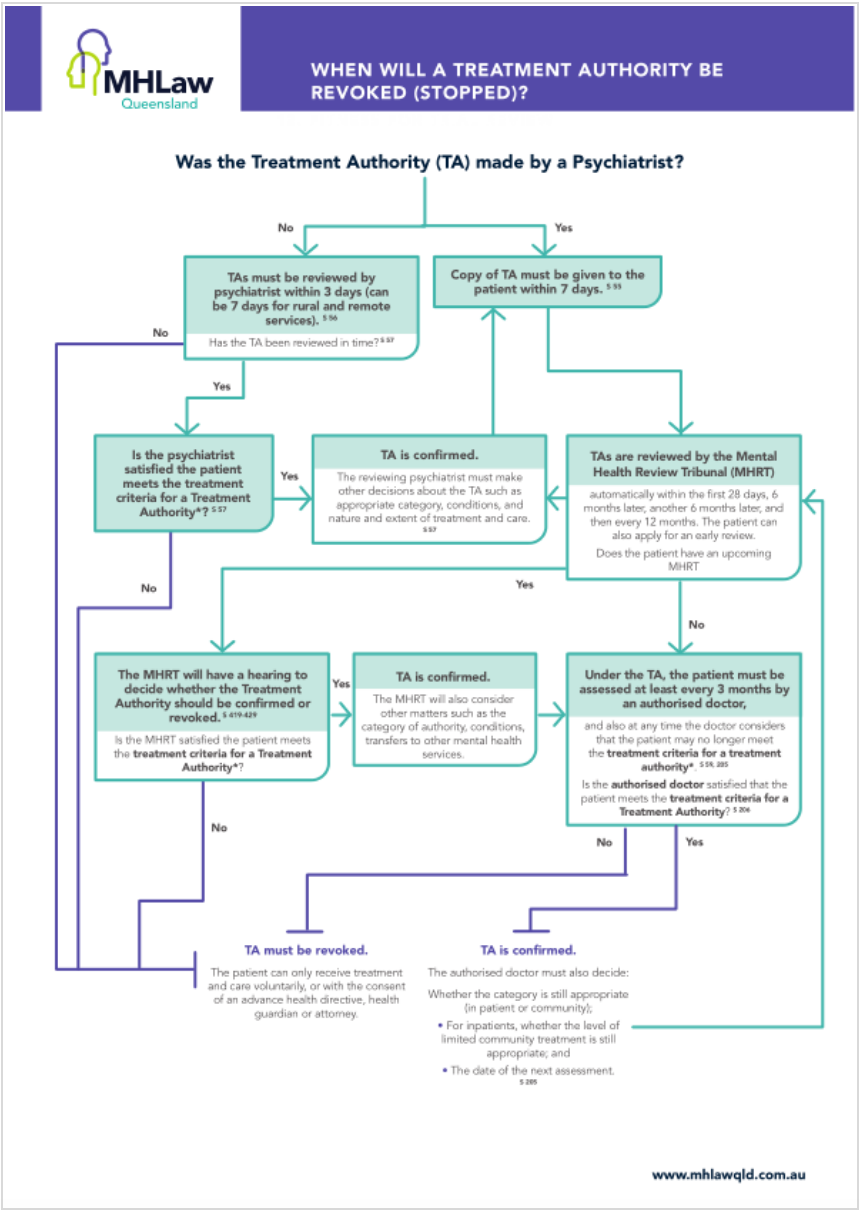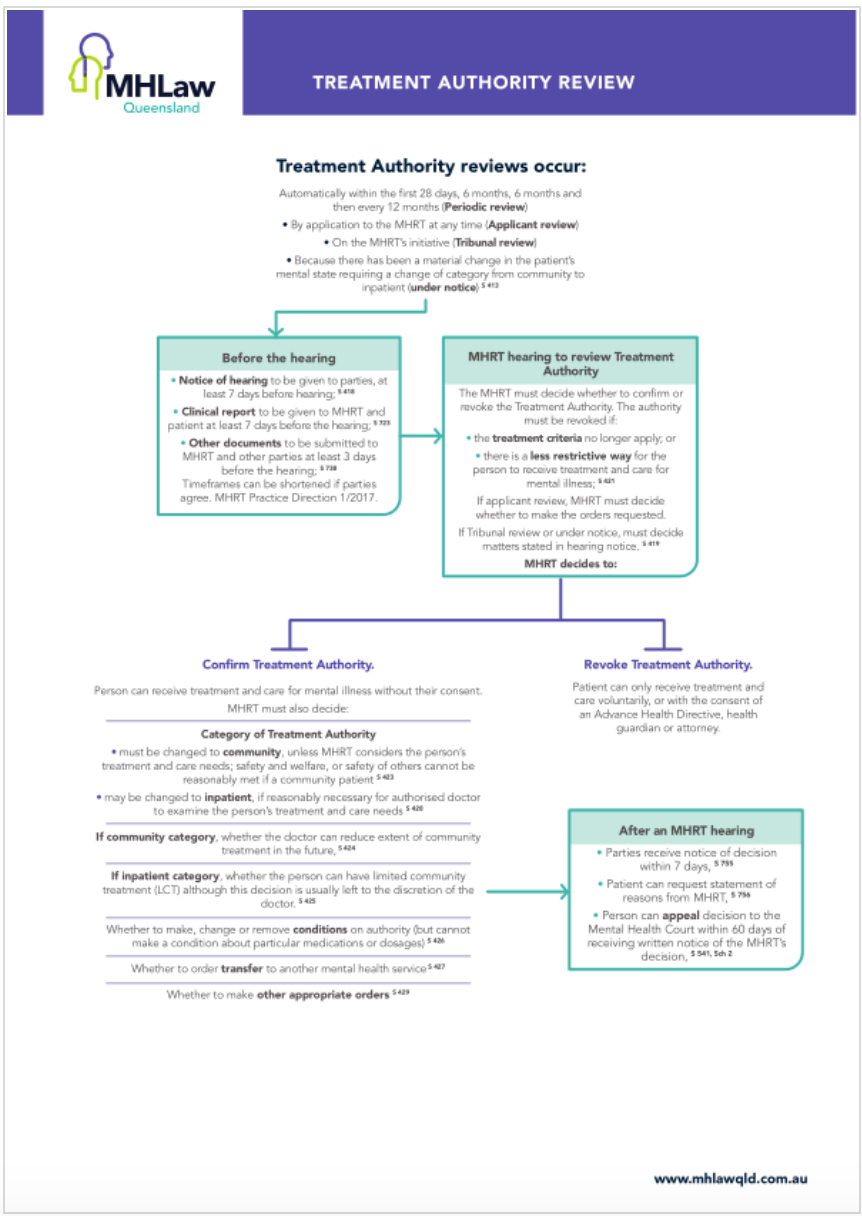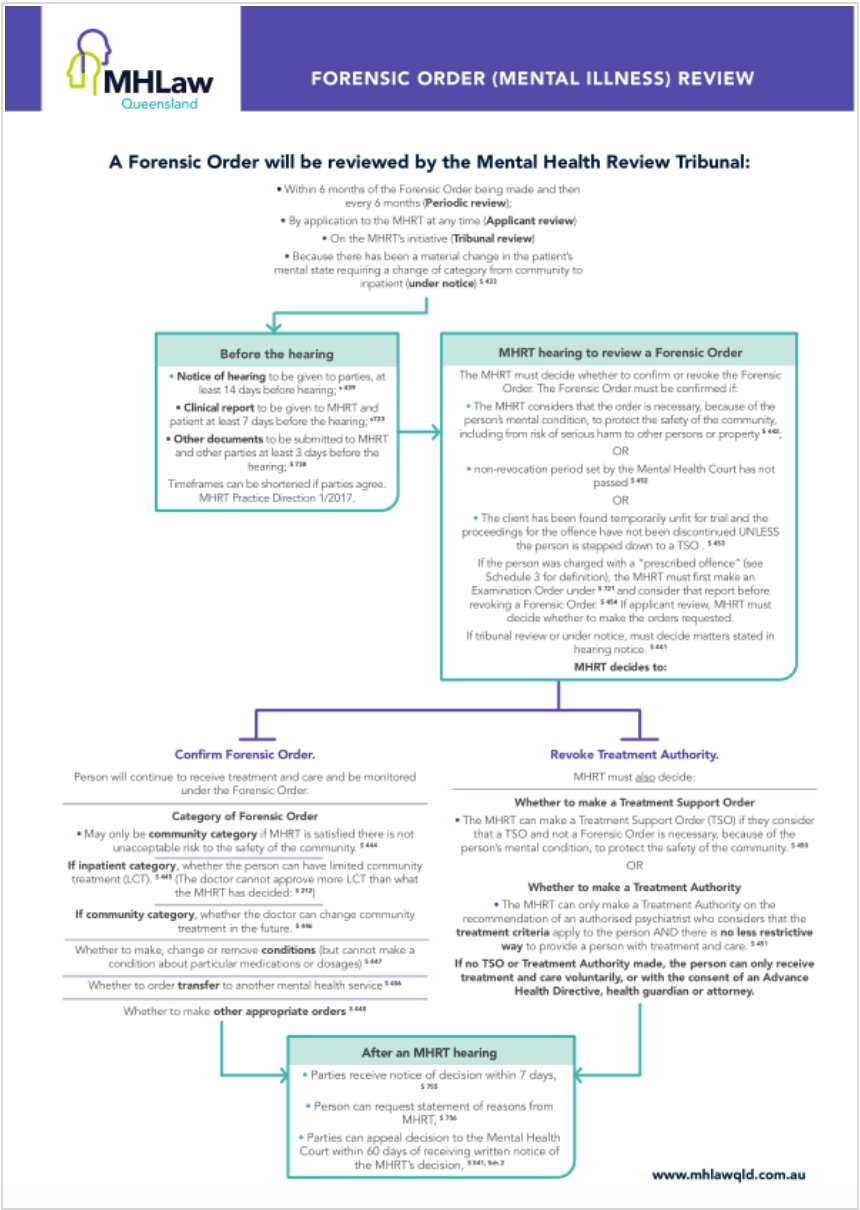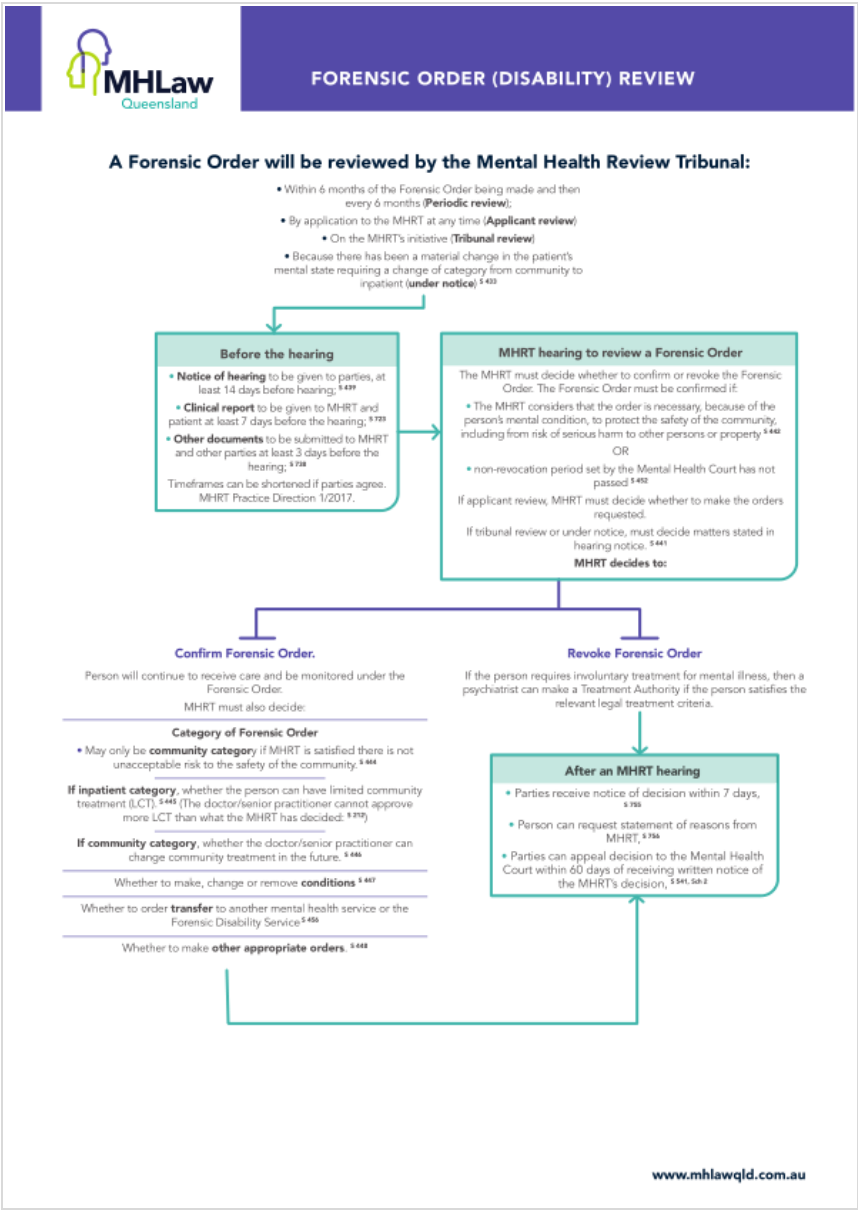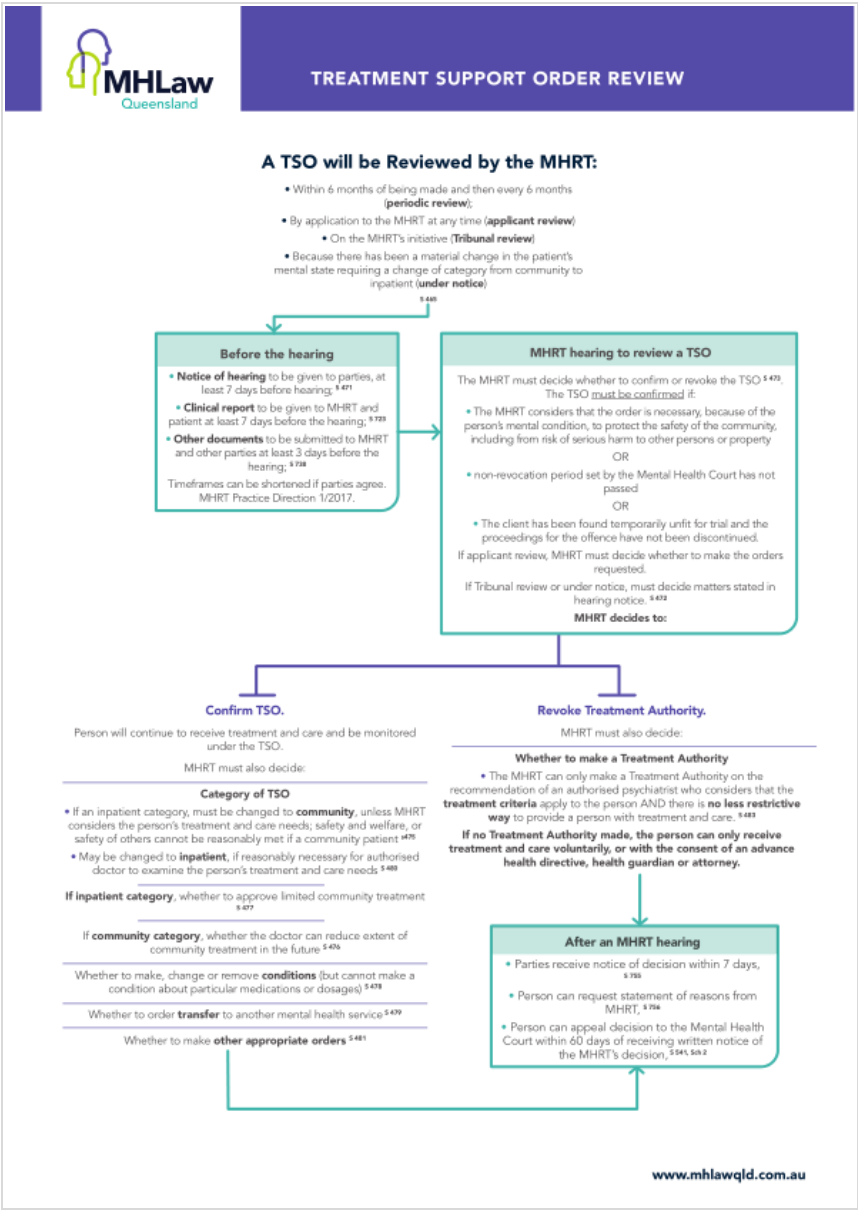Orders
Examination Authority
An Examination Authority authorises a doctor or authorised mental health practitioner to examine a person without the person’s consent, to determine whether further steps should be taken to assess the person’s mental state.An Application for Examination Authority may be appropriate where there is a concern that a person’s mental health needs to be assessed by a doctor or authorised mental health practitioner but voluntary assessment has not been possible.
An Application for Examination Authority should not be used in emergency type situations. Should the situation be an emergency where a person’s safety is at immediate risk of serious harm, you should call triple zero. When needed, police and ambulance officers can issue an Emergency Examination Authority.
Examination authorities authorise a doctor or authorised mental health practitioner to enter premises to detain and involuntarily examine a person to decide if a recommendation for assessment should be made for the person.
Recommendations for assessments are made by doctors and authorised mental health practitioners. A recommendation for assessment authorises an authorised doctor to detain and involuntarily assess a person to decide if a treatment authority should be made for the person.
References:
MHRT Examination Authority Factsheet
Examination Authorities Factsheet
Examinations and Assessments Factsheet
Emergency Examination Authorities Factsheet
Treatment Authority (Involuntary Treatment)
A treatment authority authorises the treatment and care of a person for a mental illness without the person’s consent.- Community - is the default category. This means the person receives their treatments while continuing to live in the community.
- Inpatient - An authorised doctor may only decide an inpatient category if the person’s treatment and care needs cannot reasonably be met under a community category. An authorised doctor may also make decisions about ‘leave’ arrangements.
For more information see: QAI Treatment Authorities Factsheet
See also our Mental Health Act Flowcharts for Treatment Authorities
Forensic Order (Involuntary Treatment)
Forensic orders include:- forensic order (mental health),
- forensic order (disability) or
- forensic order (Criminal Code).
A forensic order (mental health) allows the involuntary treatment and care of a person for a mental condition, and if necessary, detention in an authorised mental health service.
A forensic order (disability) allows the involuntary care of a person for an intellectual disability, and, if necessary, detention in the Forensic Disability Service or an authorised mental health service.
Forensic orders (Criminal Code) are made by the Supreme Court or District Court under the Criminal Code, sections 613, 645 or 647. These orders require a person to be admitted to an authorised mental health service to be dealt with under the Mental Health Act 2016. A forensic order (Criminal Code) allows the involuntary treatment and care of a person for a mental condition and, if necessary, detention in an authorised mental health service.
Reference: Forensic Orders Factsheet
See also our Mental Health Act Flowcharts for Forensic Orders
Treatment Support Order (Involuntary Treatment)
Treatment support orders are made by the Mental Health Court to protect the safety of the community in circumstances where a forensic order is not warranted.A treatment support order cannot be made for Forensic Order (Disability).
There are two main differences between a forensic order and a treatment support order, namely:
- the way in which treatment in the community (i.e. a community category or limited community treatment) is authorised, and
- the nature of clinical oversight of the person on the order under the Chief Psychiatrist Policies.
As with treatment authorities, the category for these orders must be a community category, unless it is necessary for the person to be an inpatient.
The Act requires the Chief Psychiatrist to make Policies for the clinical management of persons on forensic orders and treatment support orders (see section 4.1.3 of this Guide). These Policies provide a more stringent level of oversight for persons on forensic orders than those on treatment support orders.
A treatment support order may also be made by the Mental Health Review Tribunal when a forensic order is reviewed. The making of a treatment support order by the Tribunal acts as a ‘step down’ from a forensic order as part of a person’s recovery. A treatment support order allows the involuntary treatment and care of a person for a mental condition and, if necessary, detention in an authorised mental health service.
Reference: Treatment Support Orders Factsheet
See our Mental Health Act Flowchart for Treatment Support Orders
For more information:
Legal Aid Website Information
Involuntary assessment
An involuntary assessment usually occurs if a person's mental illness stops them from recognising they need help, and they may need to go to a hospital or a mental health service to be assessed without their consent.Making a treatment authority
A doctor or authorised mental health practitioner may examine the person to decide if a recommendation for assessment should be made. If a recommendation for assessment is made, it allows an authorised doctor to detain the person and assess if a treatment authority should be made. A treatment authority allows the person to be treated as an involuntary patient.The authorised doctor making the assessment isn't usually the same doctor who recommended the person for assessment. If the treatment authority is made by an authorised doctor (who isn't a psychiatrist) then it must be reviewed within 3 days by an authorised psychiatrist. This can be extended to 7 days in rural and remote areas.
A treatment authority can only be made if the authorised doctor is satisfied that:
- the treatment criteria in the Mental Health Act 2016 applies to the person and
- there's no less restrictive way for the person to receive treatment and care.
- the person has a mental illness and
- the person doesn't have capacity to consent to be treated for the illness and
- because of the person’s illness, it's likely to result in:
- imminent serious harm to the person or others or
- the person suffering serious mental or physical deterioration.
- the person can be held for up to 6 hours at a public sector health service facility, or no more than 1 hour at any other place.
- This can be extended by no more than a total of 12 hours by a doctor or authorised mental health practitioner.
If a treatment authority is made, the authorised doctor must decide whether the person will be treated in the community or as an inpatient (the person’s personal situation will be considered when making this decision). If the person is in the community and the person’s treatment and care needs, safety and the safety of others can't reasonably be met, then the authorised doctor can choose to treat the person as an inpatient.
The Queensland Government website has more information about:
- hospital admissions for mental illness
- decision making for people with mental illness
- legal options and help.
Reviewing a treatment authority
The Mental Health Review Tribunal must review a treatment authority within 28 days of the authority being made. The next 2 reviews will be 6 monthly, and then every 12 months.Reference: www.legalaid.qld.gov.au




